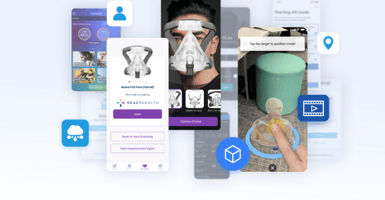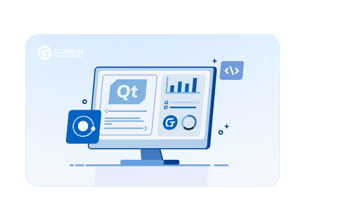Introduction In today's digital era, mobile technology has revolutionized the healthcare industry,...
Revolutionizing Healthcare: The Role and Future of mHealth Application Development
In today's rapidly evolving healthcare landscape, technology plays an increasingly pivotal role, and at the forefront of this digital transformation are Mobile Health (mHealth) applications. These dynamic apps are reshaping the healthcare industry, offering customized solutions that have the potential to revolutionize patient care, improve accessibility, and streamline healthcare delivery. In this article, we will delve into the critical role played by mHealth application development in healthcare today and explore its promising future.
The Ascendancy of mHealth Applications
Mobile Health, known as mHealth, refers to the use of mobile devices such as smartphones and tablets to support various aspects of healthcare. With smartphones becoming ubiquitous and high-speed internet access widespread, mHealth applications have experienced unprecedented growth. They have the potential to redefine healthcare accessibility, delivery, and management.
The Evolution of mHealth Application Development
mHealth application development has come a long way. Initially, these apps offered basic functions such as step tracking or calorie counting. However, as technology advanced and healthcare needs grew more complex, mHealth applications expanded their capabilities.
Key Advances in mHealth Application Development
-
Patient Engagement: Modern mHealth applications prioritize user experience, actively involving patients in their healthcare journeys. Features like appointment reminders, health tips, and interactive interfaces encourage patient participation.
-
Data Integration: Custom mHealth apps can seamlessly integrate with Electronic Health Records (EHR) systems, providing healthcare providers real-time access to patient data. This integration supports data-driven decision-making and enhances patient care.
-
Personalized Care Plans: Custom mHealth applications facilitate the creation of personalized care plans based on individual patient data. These plans may encompass medication reminders, dietary recommendations, and tailored exercise regimens.
-
Remote Monitoring: To manage chronic diseases effectively, mHealth applications now include remote monitoring features. Healthcare providers can track vital signs, monitor medication adherence, and detect symptom progression, leading to early intervention and improved patient outcomes.
-
Telemedicine and Secure Communication: Custom mHealth apps enable secure communication between patients and healthcare providers through features like telemedicine consultations, secure messaging, and video conferencing. This facilitates virtual healthcare delivery and improves patient-provider communication.
-
Scalability and Adaptability: Custom mHealth applications can evolve to meet changing healthcare needs and technological advancements. New features and functionalities can be seamlessly integrated to stay aligned with evolving healthcare trends.
Challenges and Future Prospects
While mHealth application development offers significant benefits, it also presents challenges, including data security, regulatory compliance, and interoperability. Collaboration between healthcare organizations and developers, along with adherence to industry standards, is crucial to address these complexities effectively.
Looking ahead, mHealth application development is poised to continue its evolution. Innovations such as artificial intelligence, machine learning, and the integration of wearable technology will further enhance the capabilities of mHealth applications, making them indispensable tools in healthcare.
Conclusion
mhealth app developers stands as a pivotal force in the ongoing transformation of healthcare. These customized applications bolster patient engagement, streamline processes, and enhance healthcare outcomes. As technology advances, mHealth applications will play an increasingly central role in shaping the future of healthcare, making it more accessible, efficient, and patient-centric than ever before. The role and future of mHealth application development signify a profound milestone in healthcare's journey toward innovation and empowerment.


